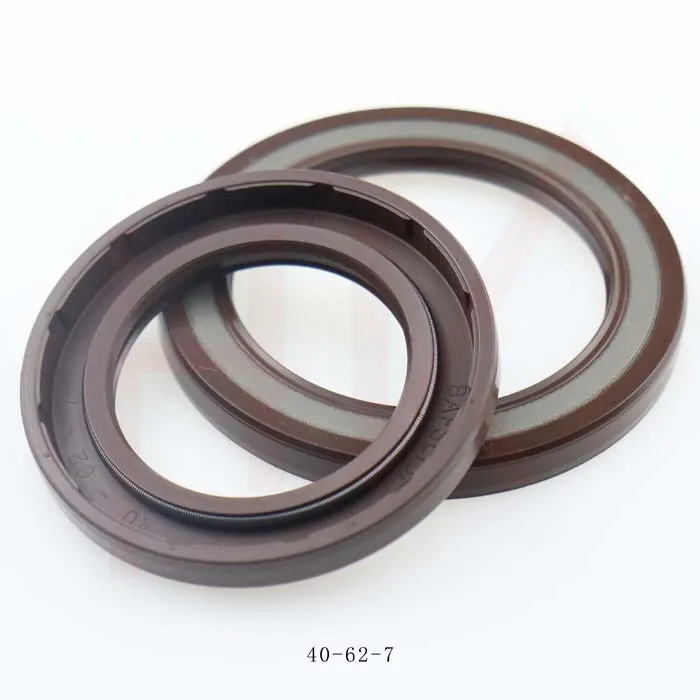Dec . 12, 2024 10:43 Back to list
skeleton oil seal
Understanding Skeleton Oil Seals Key Features and Applications
Skeleton oil seals, also known simply as oil seals or rotary shaft seals, play a vital role in various mechanical systems by preventing the leakage of lubricants and protecting machinery from contamination by external elements. These seals are commonly used in automotive, aerospace, industrial machinery, and marine applications. This article delves into the features, construction, advantages, and applications of skeleton oil seals, highlighting their importance in maintaining the efficiency and longevity of mechanical systems.
What is a Skeleton Oil Seal?
A skeleton oil seal is a type of sealing device designed to exclude dirt, dust, and moisture from penetrating a mechanical assembly while retaining lubrication within the system. It is typically made from materials such as rubber, polyurethane, or other elastomers, ensuring flexibility and the ability to withstand a range of temperatures and pressures. The term skeleton refers to the metallic casing that reinforces the seal and provides structural integrity.
Key Features
1. Design The skeleton structure consists of a metal casing that provides stability and supports the rubber sealing element. This design enables it to maintain its shape under compressive forces while allowing for dynamic movement.
2. Material Composition Skeleton oil seals are manufactured from high-quality materials that ensure durability and resistance to various environmental factors. Common materials include nitrile rubber (NBR), fluorocarbon rubber (FKM), and silicone rubber (VMQ), each chosen based on specific operational requirements.
3. Dynamic and Static Sealing Skeleton oil seals are designed for both dynamic and static sealing applications. Dynamic seals are used in rotating shafts, while static seals are utilized in non-moving applications, ensuring effective sealing regardless of the context.
4. Temperature and Pressure Resistance They are engineered to function under a broad range of temperatures and pressures, making them suitable for both high-speed and high-load applications.
Advantages of Skeleton Oil Seals
- Effective Sealing They provide a reliable barrier against the ingress of contaminants, ensuring that the lubricant remains intact and that the mechanical parts are protected from wear.
skeleton oil seal

- Cost-Effective Given their durability and long lifespan, skeleton oil seals reduce the frequency of maintenance and replacements, leading to cost savings over time
.- Easy Installation Their design facilitates relatively straightforward installation processes, allowing for quick replacements when necessary.
- Versatility Skeleton oil seals are adaptable to a wide range of applications across various industries, making them an essential component in many mechanical systems.
Applications
1. Automotive Industry In vehicles, skeleton oil seals are commonly used in engines, transmissions, differentials, and wheel bearings. They ensure oil retention and prevent leaks, thus enhancing vehicle performance and safety.
2. Industrial Machinery These seals are employed in gearboxes, pumps, and motors, helping to maintain lubrication while preventing contamination from dust and other particulates.
3. Aerospace Due to their reliability and ability to function under extreme conditions, skeleton oil seals are used in aircraft engines and systems, ensuring safety and efficiency in flight operations.
4. Marine Applications In marine environments, these seals are critical in preventing water ingress in engine compartments and other critical machinery, helping to maintain operational integrity.
5. Agricultural Equipment Equipment such as tractors and harvesters utilize skeleton oil seals to ensure that their machinery operates smoothly and efficiently in demanding environments.
Conclusion
In conclusion, skeleton oil seals are indispensable components in many mechanical systems. Their ability to prevent lubricant leakage and protect against contamination makes them crucial for ensuring the smooth operation of engines, motors, and various machinery. With a robust design that combines flexibility and durability, skeleton oil seals optimize performance across a range of applications, underscoring their importance in both everyday machinery and critical aerospace equipment. As technology advances, the manufacturing of skeleton oil seals continues to evolve, promising even better performance and reliability for the future.
-
TCN Oil Seal Metal Ring Reinforcement for Heavy Machinery
NewsJul.25,2025
-
Rotary Lip Seal Spring-Loaded Design for High-Speed Applications
NewsJul.25,2025
-
Hydraulic Cylinder Seals Polyurethane Material for High-Impact Jobs
NewsJul.25,2025
-
High Pressure Oil Seal Polyurethane Coating Wear Resistance
NewsJul.25,2025
-
Dust Proof Seal Double Lip Design for Construction Equipment
NewsJul.25,2025
-
Hub Seal Polyurethane Wear Resistance in Agricultural Vehicles
NewsJul.25,2025
-
The Trans-formative Journey of Wheel Hub Oil Seals
NewsJun.06,2025
Products categories
















